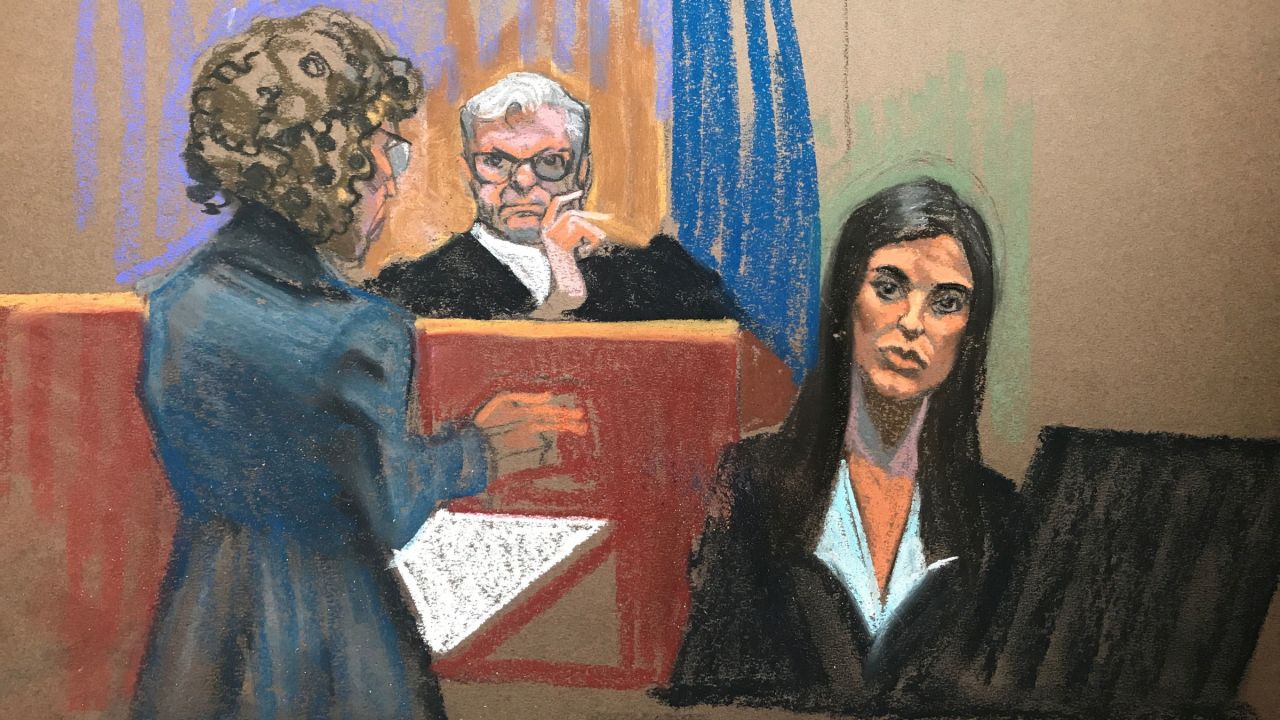Defense attorney Susan Necheles cross-examines Stormy Daniels during the trial on Thursday, May 9.
Jane Rosenberg
Former President Donald Trump’s lawyers continued their attack on the credibility of Stormy Daniels for several hours Thursday, with defense attorney Susan Necheles accusing the adult film star of making up the story of having sex with Trump.
Thursday also saw testimony from a woman who was once among the closest people working with Trump in the White House, and failed efforts by the defense to get a mistrial and an exception to the defendant’s gag order.
Here are some key takeaways from Day 14 of the Trump hush money trial:
Contentious testimony: Daniels combatively and defiantly responded to questions from Necheles, insisting her story of a sexual encounter with Trump was true. Trump has denied the affair.
Trump’s attorney asked about minor inconsistencies in interviews Daniels has given about her interactions with Trump. Necheles also picked apart how Daniels has previously described the encounter.
Necheles also insinuated Daniels had employed her skills as a porn writer in making up the story. “You have a lot of experience of making phony stories about sex appear to be real,” the Trump attorney asked.
“Wow,” Daniels said, with a pause. “That’s not how I would put it. The sex in the films is very much real, just like what happened to me in that room.”
Lawyers spar over Daniels’ financial situation: Beyond the details of the alleged encounter itself, Trump’s attorneys and prosecutors had Daniels tell conflicting accounts of her financial situation.
Necheles continued to suggest that Daniels was making money off of saying she had sex with Trump, pointing to a tweet where she said she’d earned $1 million and others where she directed her supporters to her online store after Trump was indicted.
Prosecutors, meanwhile, had Daniels recount how telling her story has also cost her, from having to move her daughter and hire security to the lawyers’ fees she was ordered to pay after she sued Trump and lost.
Former aide takes us inside the Trump White House: Former White House aide Madeleine Westerhout described the inner workings of Trump’s West Wing, where she worked for more than two years sitting just outside the Oval Office.
Westerhout described Trump’s work habits, from his affinity for sharpies and hard copies of documents, to his close control over his social media posts and his preference to talk to people in person or on the phone — not by email.
While she did not testify to direct knowledge of the checks Trump signed to his former fixer Michael Cohen, which are cited in the charges against Trump, her story added to the prosecution’s narrative about his involvement with the checks in 2017.
Two failed efforts by Trump’s team: Judge Juan Merchan denied the request from Trump’s lawyers to make an exception to the gag order allowing him to speak publicly about Daniels, saying he must protect the integrity of the proceedings, and he doesn’t trust Trump not to violate an order if he were to modify it.
The judge also denied Trump’s renewed motion for a mistrial over the salacious testimony Daniels gave, which his attorneys say unfairly prejudices the jury against Trump. Merchan said the specificity is important to helping the jury make a determination.
Read a full recap of Thursday’s proceedings here.











